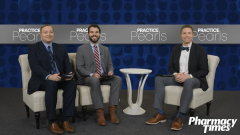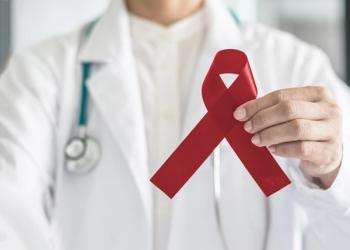
Oncology Pharmacists Influencing the MM Treatment Landscape
Drs Haumschild, Anderson, and Hinojosa provide their closing thoughts regarding treatment considerations for patients with RRMM.
Ryan Haumschild, PharmD, MS, MBA: We know that it’s an exciting time [in] multiple myeloma [MM]; there are a lot of therapies coming and still a lot more progress that can be made in this space, especially in indolent disease, and aggressive relapse disease. We also know care is best delivered by a multidisciplinary team. Dr Hinojosa, I’d love for you to summarize for us what you think the role of the oncology pharmacist is for our viewers and how can the oncology pharmacist on the team be most impactful in terms of therapeutic recommendation in overall patient management?
Gabe Hinojosa, PharmD, BCOP: I think if I could boil down the entire role of an oncology pharmacist into 1 word, which would be tough, that word would be education. That is educating myself on new therapies coming out, staying up-to-date with trials, looking at new targets, looking at these T-cell redirection therapies, really thinking through not only the clinical side but, operationally, how can I help deliver this drug to the patient. Beyond that and those thoughts, educating our multidisciplinary team on these new drugs as they come out, and really focus on specific monitoring…or specific patient populations that would benefit from this drug. Really being familiar with those trials and being able to recommend and educate our team that patients A, B, and C are going to be excellent candidates for this drug, but patient D may not, and we may see some trouble looking through the logistics of building out our treatment plans with monitoring parameters, and then educating our staff from top to bottom on when and how to monitor for those treatment parameters to make sure that we’re catching…some of these more complex toxicities. Really focusing on the decentralized role of the oncology pharmacist and being there with your team and really being involved in those conversations and hearing the discussion between the nurse and the physician and the APP [advanced practice provider] to be able to fully understand that patient since we’re not always seeing them face-to-face as often as the rest of the team so that we can make sure that we’re tailoring therapy. We’re keeping up with prior lines of therapy so that we know, and maybe we’re keeping a checklist in our head on these patients as we see them progress, and we can keep an eye on those lab [results] so that we know when the patient is starting to have potentially an indolent relapse, what might be the best drug to recommend to the team next?
Ryan Haumschild, PharmD, MS, MBA: Such important thoughts and takeaways and…some of the things that I even summarize are: we’ve got strong providers that are looking at literature, and really utilizing these therapies appropriately and especially with proteasome inhibitors and CD38 is the backbone of multiple regimens. But knowing what are the patient’s specific factors, what [are] their social determinants of health, how do I educate them, do I know they’ve been adhering or not, or have they had underlying toxicities that I need to be thoughtful of, can really change the game. I think another important thing that you and Dr Anderson really teased out today is having treatment pathways and protocols. While you can’t protocolize everything, to have a generalized best practice approach really allows providers to sit back on the literature and know that they’re having the best chance of this patient having a great response. I think…that’s really what we’re centered around. Thank you both for this really engaging discussion on MM, especially the important role proteasome inhibitors play in indolent relapse disease. For our viewing audience, we hope you found this Pharmacy Times® Practice Pearlsto be rich and informative.
Transcript edited for clarity.
Newsletter
Stay informed on drug updates, treatment guidelines, and pharmacy practice trends—subscribe to Pharmacy Times for weekly clinical insights.


























